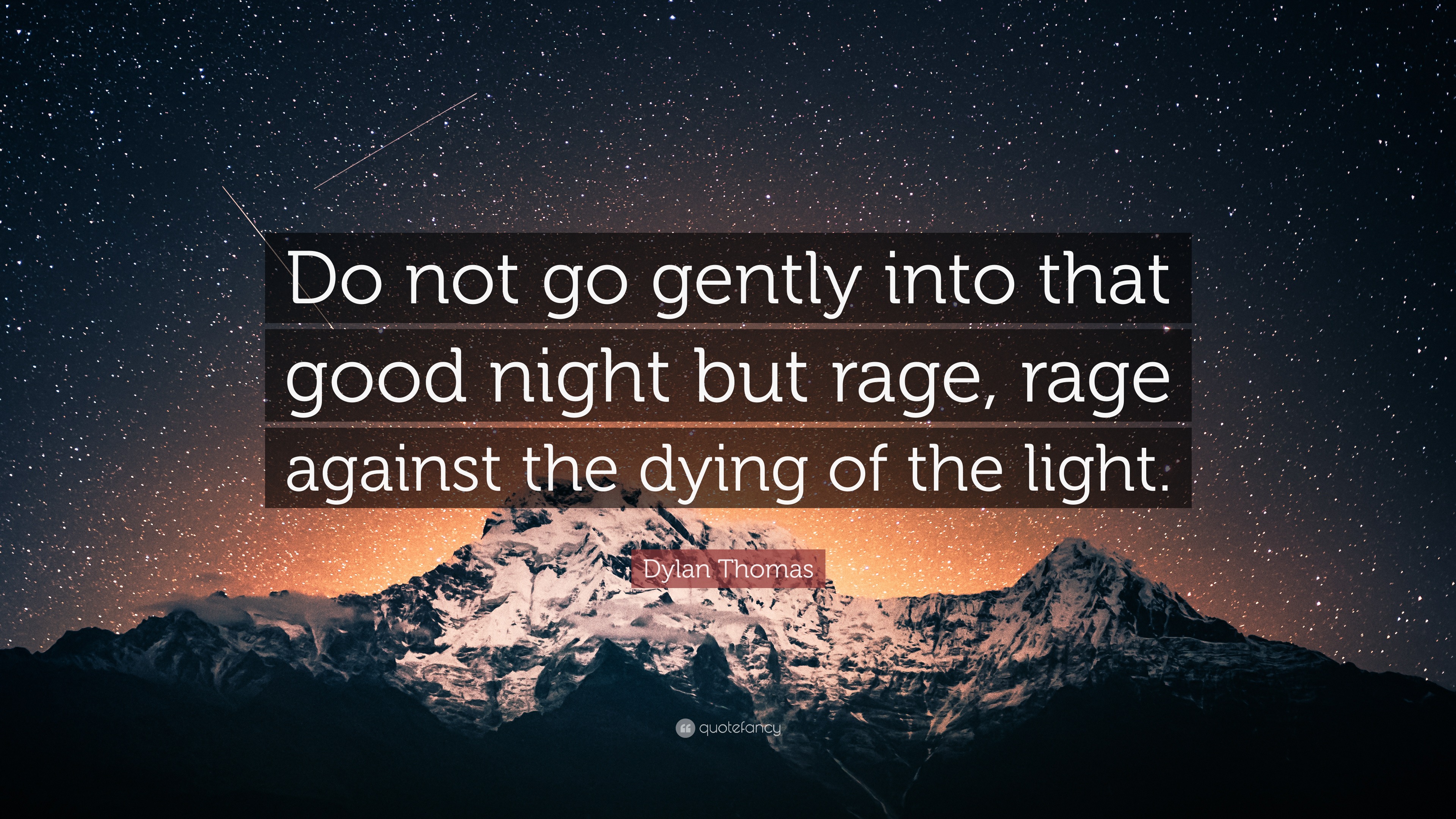
It takes courage to fight for your life, but more so to convince your loved ones to do the same. Dylan Thomas' Do Not Go Gentle Into That Good Night, is a beautiful and touching experience of the poet, who sits by his dying father, asking him to resist the end of the tunnel, and seek but the light of life in the darkest of time.
Do Not Go Gentle Into That Good Night
Dylan Thomas
Do not go gentle into that good night,
Old age should burn and rave at close of day;
Rage, rage against the dying of the light.
Though wise men at their end know dark is right,
Because their words had forked no lightning they
Do not go gentle into that good night.
Good men, the last wave by, crying how bright
Their frail deeds might have danced in a green bay,
Rage, rage against the dying of the light.
Wild men who caught and sang the sun in flight,
And learn, too late, they grieved it on its way,
Do not go gentle into that good night.
Grave men, near death, who see with blinding sight
Blind eyes could blaze like meteors and be gay,
Rage, rage against the dying of the light.
And you, my father, there on the sad height,
Curse, bless, me now with your fierce tears, I pray.
Do not go gentle into that good night.
Rage, rage against the dying of the light.
He brings a comparison between men of all kinds, as every man has reason to fight for dear life. The gift of life, he explains, is a blessing, and one hold onto it till its last string.
Wise men, he says reckon there's more to life, awning for achievements that they have yet to make. They believe there is more they can do with their wisdom, hoping there's a chance of making a difference to the world, or to someone's life. They believe they mustn't let go of their life so soon, for their intelligence and wisdom still has the potential to do good, and therefore, they would fight against the end of life, for the chance to fulfill their destiny.
Good men, seek to do better, says the poet. At the brink of death, good men think of the good deeds they are yet to do, and how the little tasks they set out to do, make a beautifu difference to this world. While at the gate of darkness, they resist its calling, to better the world around them, with their good intentions, and sweet actions. The goodness in them shall fight, fight to do better whilst they still have a chance; and threfore they shall not leave without a fight.
Wild men, says the poet, have plenty they still wish to do. They lived their life in splendor, and missed their youthful rigor towards the end of their lives. As they enjoyed their life through the bright phases of their life, they turned sad as the days of their lives turned dim; and now they seek a chance to have changed that attitude and live their life with the same vigor they once did. They bid the approaching death to stay away, as they must seek what they once has and live the life they once enjoyed, yet again.
Grave men, he says, who saw the world in its greyest light, look bright and wide through the dying light, regretting the sadness that governed their life, and viewing what's left with the brightest shine. With the end approaching, they wish to rectify their actions, and be more optimistic towards life. They aren't ready for the end just yet, and will fight to live a happier life than what they did. It is time, they believe, to see through their 'blind eyes' the world that they had missed on, due to their serious old self. It is time to fight.
At the end, the poet looks to his father, and pleads him to 'curse, bless' him, using this oxymoron to initiate some exchange of words between, of any kind. He has forgotten all the differences between him and his father, as he looks at his frail self on the death bed, asking him to fight, fight for dear life,fight for another breath, fight for the vigor he once had and for the million things he could still do. He pleads his father to rage against the dying of the light, for like any man, there is always something to fight for.
And so should you...
